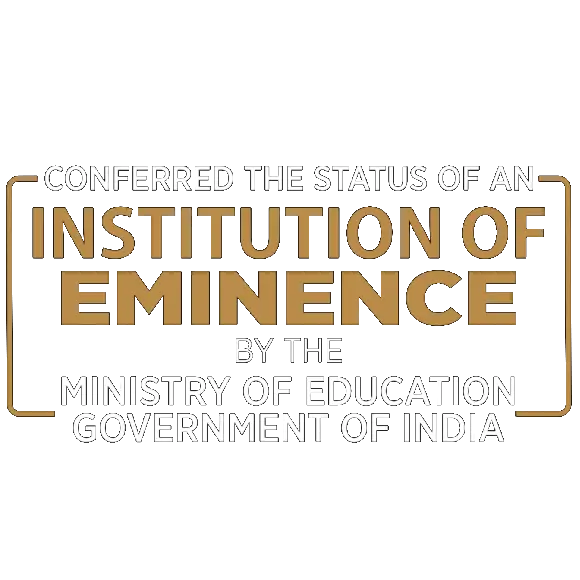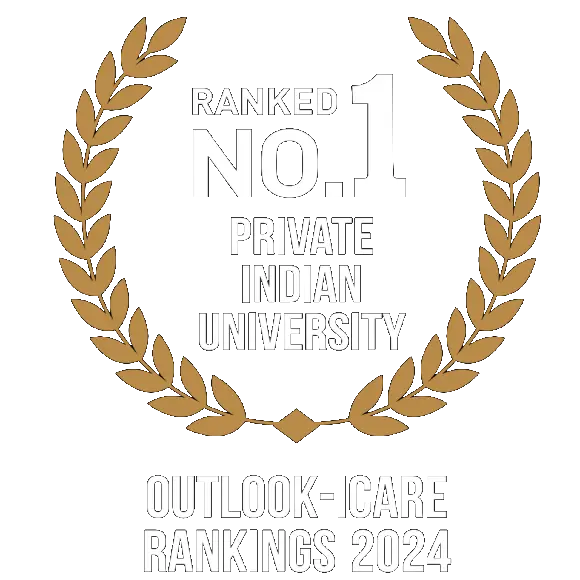I am more convinced than ever that the world today needs a new vocabulary to communicate and tell stories that can help change lives. I am often asked why study journalism, communication or cinema? What is the future of these streams of studies? The future of our democracy rests on media and how they report/document the lived experiences of people and places. Jindal School of Journalism & Communication (JSJC) is committed to advancing this mission by recruiting and training the next generation of journalists, media professionals, and filmmakers.
Students
University Faculty & Staff
Collaborations with International Universities
Alumni Network
Publications







































In an era defined by digital transformation and rapid information flow, journalism, corporate communication, and media studies have emerged as essential disciplines for understanding society, shaping narratives, and influencing public opinion. With the growing complexity of global communication networks, professionals in these fields must be trained not only in content creation but also in ethics, audience engagement, storytelling techniques, and technological adaptability. The Jindal School of Journalism and Communication provides students with adequate training across disciplines ranging from journalism and public affairs to film and new media, anchoring their skills in a global context. The role of journalism is not simply to report events but to offer critical perspectives, reflect on the implications of stories, and serve as a check on institutional power. Students interested in this field often consider courses in journalism, film making courses, and courses for corporate communication, depending on their career aspirations.
Journalism and communication are fundamental pillars of a democratic society. Journalism involves the collection, preparation, and dissemination of news and related commentary and features through print and electronic media. This includes newspapers, magazines, blogs, podcasts, webcasts, radio, motion pictures, and increasingly, social networking platforms and email. The purpose of journalism is not only to inform but also to investigate, critique, entertain, and shape public discourse.
Communication, particularly in the corporate communication and public relations domain, involves the strategic management of messaging within and between organisations and their audiences. It is concerned with building reputation, fostering engagement, and managing crises or public narratives. Professionals in this area are expected to have expertise in branding, stakeholder management, media relations, and internal communications.
Students enrolling in corporate communication courses or studying journalism gain a blend of theoretical knowledge and practical insight into how communication influences behaviour, opinion, and decision-making.
James Augustus Hickey, who launched the Hicky's Bengal Gazette in 1780, is widely considered the father of Indian journalism. His work marked the beginning of an independent press in India, and he laid the foundation for journalistic integrity and freedom of speech in colonial times.
Globally, figures such as Joseph Pulitzer and Walter Lippmann are credited for shaping modern journalism with their contributions to investigative reporting and public opinion research.
Understanding the pioneers of the field allows students to grasp journalism’s rich heritage and its evolution in both ethical and technological dimensions.
Yes, journalism can be an extremely rewarding career for those passionate about current affairs, storytelling, and public impact. It offers intellectual fulfilment, the opportunity to inform and influence society, and the excitement of working in a dynamic, fast-paced environment.
The scope of journalism in India has expanded significantly with the rise of digital media. Traditional print journalism now exists alongside television, web portals, podcasts, and mobile-first platforms. Additionally, media houses are increasingly relying on multimedia journalism, requiring skills in writing, video, photography, and interactive design.
Careers are available in reporting, editing, data journalism, video production, investigative journalism, documentary filmmaking, podcasting, and news analytics. Students from the best colleges for journalism in Delhi, such as ours, are also entering related fields like content strategy, social media analysis, and media research.
While the profession has its challenges—deadlines, pressure, and public scrutiny—it also offers meaningful engagement with pressing societal issues and the potential to enact positive change.
A journalist serves as a conduit between information and the public. Their primary responsibilities include researching stories, verifying facts, conducting interviews, and presenting news in a clear, balanced, and engaging manner. In an age of misinformation and algorithm-driven content, the journalist’s role has become even more critical.
Modern journalists are also expected to have multimedia capabilities—editing videos, producing podcasts, designing infographics, and publishing across platforms. Whether they work for a national daily, a niche magazine, or a digital-first outlet, journalists must uphold ethical standards while meeting the public's growing demand for timely and accurate information.
Students exploring journalism courses in India will find their training focuses not only on writing and editing but also on ethics, audience analysis, and digital storytelling.
Journalism holds immense importance in democratic societies. It facilitates informed citizenship, encourages transparency, and holds the powerful accountable. A free and fair press contributes to national development by uncovering the truth, sparking debate, and amplifying marginalised voices.
As India continues to navigate complex challenges—social, economic, and political—the need for well-trained, ethical journalists is greater than ever. Courses at Media Studies Colleges in India are now incorporating data analysis, AI in media, and digital communication tools to ensure students remain ahead of global trends.
While a newspaper appears as a single product, it is created by a team of professionals: journalists, reporters, editors, sub-editors, photographers, graphic designers, and sometimes freelance contributors. Editors play a crucial role in defining the publication’s tone and ensuring accuracy and credibility.
Those interested in understanding this ecosystem may explore both journalism course details and practical modules during their undergraduate or postgraduate studies.
The salary space for journalism and media professionals in India varies significantly depending on role, location, experience, and the medium of work. Entry-level reporters and writers may begin with modest earnings. However, as one gains experience and moves into editorial, production, or specialised reporting roles, salaries can rise considerably.
For those working in television or digital platforms, particularly in metro cities, the remuneration can be competitive. Anchors, content strategists, and media producers often command higher packages, especially in major organisations.
Graduates from top journalism colleges in India and best media colleges in India, particularly those located in Delhi NCR, benefit from higher placement opportunities and more lucrative starting offers.
Moreover, those entering the corporate communication and public relations fields often find salaries to be above average for fresh graduates, with substantial growth based on performance and role expansion. Communication professionals in multinational corporations or strategic consultancy firms may earn even more, with roles extending to brand management, reputation strategy, and executive communication.
The intersection of journalism, storytelling, and film has become especially relevant in the era of new media. Film making courses in India are not only focused on cinema but also include documentary production, short films, digital content, and branded storytelling.
Programmes on Film and New Media prepare students for careers in direction, production, scripting, editing, and even digital marketing. Graduates may pursue roles in OTT platforms, advertising agencies, production houses, or independent filmmaking.
India is home to some of the best film institutes, such as the Film and Television Institute of India, but there is also rising interest in contemporary and interdisciplinary filmography courses that align with communication and media strategies.
For students interested in film-making courses, it's important to choose programmes that include exposure to narrative theory, practical cinematography, editing, and industry collaboration.
Whether your interests lie in journalism, corporate communication and public relations, or storytelling through film, these disciplines offer diverse and meaningful career paths. Informed by the needs of today’s fast-paced, content-driven world, these fields demand professionals who are creative, analytical, ethical, and adaptable.
Graduates from top mass communication colleges in India, particularly those with a specialisation in journalism, media studies, or corporate communications, are equipped with the mindset to lead conversations, shape opinion, and build responsible narratives on a global scale.